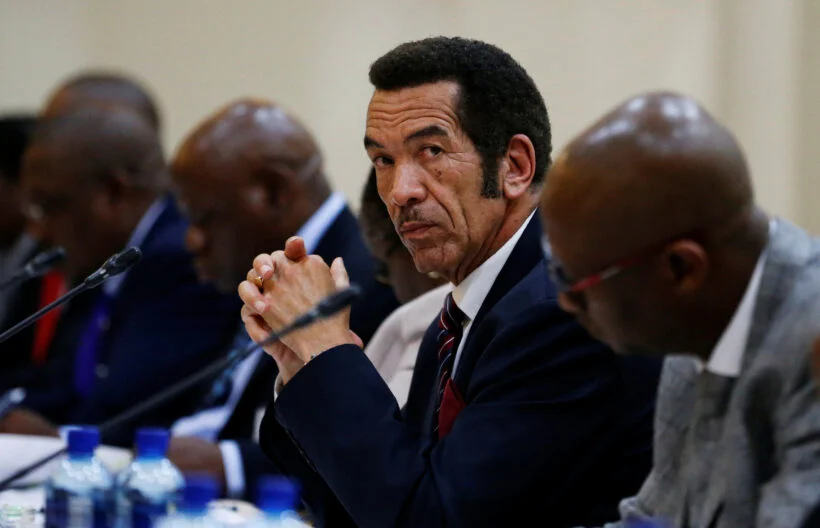Former Botswana President Ian Khama made a dramatic return to his homeland on Friday, ending nearly three years of self-imposed exile to face charges of illegal firearm possession and receiving stolen property. The return of the influential political figure comes just weeks before a crucial national election, heightening tensions in the southern African nation.

Khama, 70, appeared before a magistrate’s court in Gaborone, where two arrest warrants issued against him in April 2022 were suspended. The former president had been living in exile, primarily in neighboring South Africa, since late 2021 following a bitter fallout with his successor, President Mokgweetsi Masisi.
Magistrate Mareledi Dipate presided over the hearing, where Khama faced allegations including unlawful possession of a firearm, receiving stolen property, and procuring the registration of a firearm by false pretense. Khama has consistently denied these charges, claiming they are politically motivated.
The son of Botswana’s founding president, Seretse Khama, Ian Khama’s return adds a new dimension to the upcoming October 30 national election. Khama, who quit the ruling Botswana Democratic Party (BDP) in 2019, has thrown his support behind the opposition Botswana Patriotic Front. He had previously stated his intention to return to Botswana to help unseat President Masisi, his former ally turned rival.
The political landscape in Botswana, long considered one of Africa’s most stable democracies, has been increasingly turbulent since the rift between Khama and Masisi became public. Khama’s exile and subsequent legal troubles have been seen by some as an attempt to neutralize a powerful political opponent.
Khama’s return and court appearance have drawn significant attention from both supporters and critics. Outside the courthouse, a mix of curious onlookers and political supporters gathered, highlighting the ex-president’s enduring influence in Botswana’s political sphere.
The suspension of the arrest warrants allows Khama to remain in Botswana, potentially playing a more active role in the opposition’s campaign efforts. However, the legal proceedings against him are set to continue, with the next court appearance scheduled for September 23.
The charges against Khama stem from a broader investigation into alleged misuse of state resources during his presidency, which ended in 2018. The case has been a focal point of political discourse in Botswana, with supporters of Khama claiming persecution and those aligned with Masisi arguing for accountability.
As Botswana approaches the October elections, Khama’s return adds another layer of complexity to an already heated political climate. The outcome of both the legal proceedings against Khama and the upcoming election could have significant implications for the future of Botswana’s democracy and its reputation for political stability in the region.
International observers are closely watching these developments, as Botswana’s political stability has long been seen as a model for other African nations. The handling of Khama’s case and the conduct of the upcoming election will be crucial tests for the country’s democratic institutions and rule of law.



